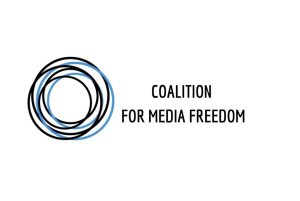The Independent Journalists’ Association of Serbia (IJAS) expresses deep concern over the manner in which the Ministry of Information and Telecommunications (MIT) is handling the process of amending key media laws — the Law on Public Information and Media (LPIM), the Law on Electronic Media (LEM), and the Law on Public Media Services (LPMS).
A process that has lasted more than a year and a half has culminated in an unacceptable acceleration of the adoption of laws and lack of transparency: although the European Commission provided comments on the draft laws back in December 2023, MIT only responded at the end of 2024 and formed working groups. These groups were given extremely short deadlines and were not provided access to the draft versions submitted to Brussels. The draft Law on Public Information and Media was never even distributed to members of the working group, despite its formal establishment.
Yesterday, MIT presented all three laws to the members of the working groups who attended the meeting. The Media Freedom Coalition immediately requested a public debate following the announcement of the meeting, a request was repeated by several associations present. However, MIT refused to organize such a debate, instead sending an email stating that the European Commission confirmed alignment of all draft laws and requested feedback within 48 hours, justifying that further discussion would “slow Serbia’s EU integration.” This approach undermines democratic procedures and disenfranchises the entire media community.
Key changes in the media laws:
Law on Public Information and Media (LPIM)
The draft contains provisions that, although declaratively affirming freedom of expression and the presumption of innocence, could in practice be arbitrarily applied against investigative journalists (Articles 84 and 85).
Regarding public procurement, the European Commission’s demand to clearly define which services can be procured and under what conditions was ignored. Instead, a declarative clause was added: “All public procurements of media services by public authorities shall be awarded in accordance with transparent, objective, proportionate, and non-discriminatory criteria” — without specifying the services or linking them to the Law on Public Procurement, and thus without any meaningful oversight mechanism.
A new Article 39a introduces certain obligations for media partially or fully owned by entities such as Telekom, such as an internal code of ethics, a ban on politicians and public office holders participating in management structures, and mandatory publication of reports. However, it does not establish independent oversight or penalties for non-compliance. Relying solely on self-regulation in state-controlled media falls far short of ensuring editorial independence and may serve as a façade for legitimizing political influence. Back in 2023, IJAS warned that Article 39 enables the return of state ownership in the media, directly undermining the goals of the 2020–2025 Media Strategy, such as a fair market and free journalism. The recent pressure on Euronews Serbia — condemned by both EFJ and IJAS — shows how inadequate declarative measures are in the absence of genuine institutional safeguards.
Law on Electronic Media (LEM)
The draft claims to enhance the functional independence of the Regulatory Authority for Electronic Media (REM), even though this institution has not been operational for seven months due to institutional irresponsibility. The amendments shift more responsibility onto media service providers for content involving hate speech, violence, discrimination, and other harmful material, with fines ranging from 500,000 to 2,000,000 dinars — seemingly a firm stance on paper.
However, the legislation still avoids setting clear rules on the issues that shape the media landscape during elections: covert political advertising, official campaign promotion, and political marketing remain unaddressed. Both domestic and international election observers have consistently identified this as a major flaw.
Law on Public Media Services (LPMS)
While this law introduces some positive changes — such as removing the “national” designation from public broadcasters, regulating subscription fees in line with minimum wage, and empowering the Program Council to appoint the Viewers’ and Listeners’ Rights Commissioner — it still fails to address key issues of editorial independence and power concentration. The Commissioner remains marginalized, employed part-time and without the power to initiate procedures independently. The biggest concern is the retention of excessive authority by the General Director, since the Managing Board still lacks key powers in appointing editorial staff.
Additionally, the new budget financing rules for public broadcasters — though formally banning political influence — leave room for abuse, especially through vague categories like “projects of special social importance.” Rather than ensuring true independence, these rules create a channel for politically rewarding loyal media under the guise of reform.
Despite a years-long process, the media laws adopted at the end of 2023, as well as the by-laws undermining their intent and implementation, have done more harm than good. Serbia has been without a constituted REM Council for seven months, effectively leaving the media regulator non-functional. In the meantime, attacks and pressure on journalists have doubled, while institutional protection mechanisms remain passive or non-existent. Repressive measures — including criminal proceedings and intimidation — have intensified, and public funds have been even more politicized, funneled to media outlets that repeatedly violate both the law and the Serbian Journalists’ Code of Ethics, spreading propaganda, hate speech, and disinformation.
Instead of genuine reforms to safeguard media freedom and editorial independence, we are witnessing the codification of abuse into law.
IJAS once again calls for a public debate on the amendments to media laws — especially the Law on Public Information and Media and the Law on Electronic Media — which have not undergone public consultation in line with the minimum standards of democratic participation and professional input.
Independent Journalists’ Association of Serbia
Belgrade, May 20, 2025.




